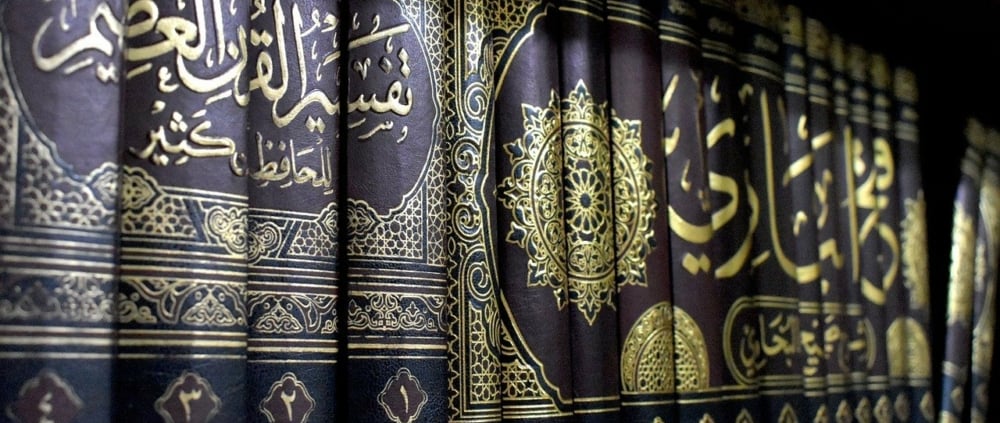How Are Hadiths about Gender Determination Explained?
Answered by Mawlana Ilyas Patel
Question
I have a question about a hadith found in the Musnad of Ahmad. The hadith can be found here.
I read some hadiths mentioned in Bukhari about the resemblance of a child to either the mother or father, depending upon which fluid dominates. Some versions of the hadith say that gender is determined by which fluid dominates. I know that some scholars question the wording of the hadith and whether gender was a part of the hadith or if it was a mistake of the narrators. However, the hadith I linked from the Musnad of Ahmad seems to refer to a different event. Are there any variations of this hadith? If not, how can it be reconciled?
Answer
In the Name of Allah, the Most Merciful and Compassionate.
I pray you are in good faith and health. Thank you for your important question.
The hadiths regarding gender determination tell us how a child sometimes resembles the father’s side and, at other times, the mother’s side. Based on this, the Prophet (Allah bless him and give him peace) meant that when the male factor, i.e., the Y chromosome is dominant, it is a boy, but when the female factor, i.e., the X chromosome is dominant, then it is a girl.
There is no contradiction in the hadiths. When looking at all the hadiths, it is only when one reads narrations that mention the pronouns only one can misunderstand. If one reads hadiths that mention the wording of man and woman categorically, then it will give an explanation to those hadiths which mention the pronouns.
Hadith Mentioning Man and Woman Categorically
Some hadiths mention gender determination clearly, like in Musnad Ahmad below; when the water of the woman dominates and overcomes the man’s, the child will resemble its maternal ancestry, and if the man’s water overcomes her water, the child will resemble the paternal ancestry.
Aisha (Allah be pleased with her) reports a woman asked the Prophet (Allah bless him and give him peace), “Is any washing necessary for a woman when she has a sexual dream and sees liquid?” He replied, “Yes, when she sees signs of liquid.” Aisha said to her, “may your hands get soiled, (in exclamation)” The Prophet (Allah bless him and give him peace) said, “leave her; the resemblance is because of it! When the woman’s water dominates the man’s water, the child resembles its maternal ancestry, and when the man’s water dominates the woman’s water, the child resembles its (paternal ancestry).” [Ahmad]
Hadith Mentioning Male and Female Pronouns
And in some hadith, like in Bukhari and Muslim below, using a pronoun also leads to the same understanding.
Umm Salama told how Umm Sulaim said, “Messenger of Allah, Allah is not ashamed of the truth. Is any washing necessary for a woman when she has a sexual dream?” He replied, ”Yes, when she sees signs of liquid.” Umm Salama then covered her face and said, “Messenger of Allah, does a woman have sexual dreams?” He replied, ”Of course she does. In what way does her child resemble her?” [Bukhari; Muslim]
Muslim added in the version of Umm Sulaim, “The man’s liquid is coarse and white, the woman’s fine and yellow, so the resemblance comes from the one which prevails or comes first.” [Mishkat al-Masabih]
Tibi explains the pronoun “of the two” means which of the two waters prevails or dominates, or it is also possible that the pronoun refers to the man and woman. [Tibi, Sharh al-Tibi li Mishkat al-Masabih]
Why not begin your search for knowledge by signing up for a course on SeekersGuidance?
I pray this helps with your question.
Wassalam,
[Mawlana] Ilyas Patel
Checked and Approved by Shaykh Faraz Rabbani
Mawlana Ilyas Patel is a traditionally-trained scholar who has studied in the UK, India, Pakistan, Syria, Jordan, and Turkey. He started his early education in the UK. He went on to complete the hifz of the Quran in India, then enrolled in an Islamic seminary in the UK, where he studied the secular and ‘Aalimiyya sciences. He then traveled to Karachi, Pakistan. He has been an Imam in Rep of Ireland for several years. He has taught hifz of the Quran, Tajwid, Fiqh, and many other Islamic sciences to children and adults onsite and online extensively in the UK and Ireland. He taught at a local Islamic seminary for 12 years in the UK, where he was a librarian and a teacher of Islamic sciences. He currently resides in the UK with his wife. His interest is a love of books and gardening.
